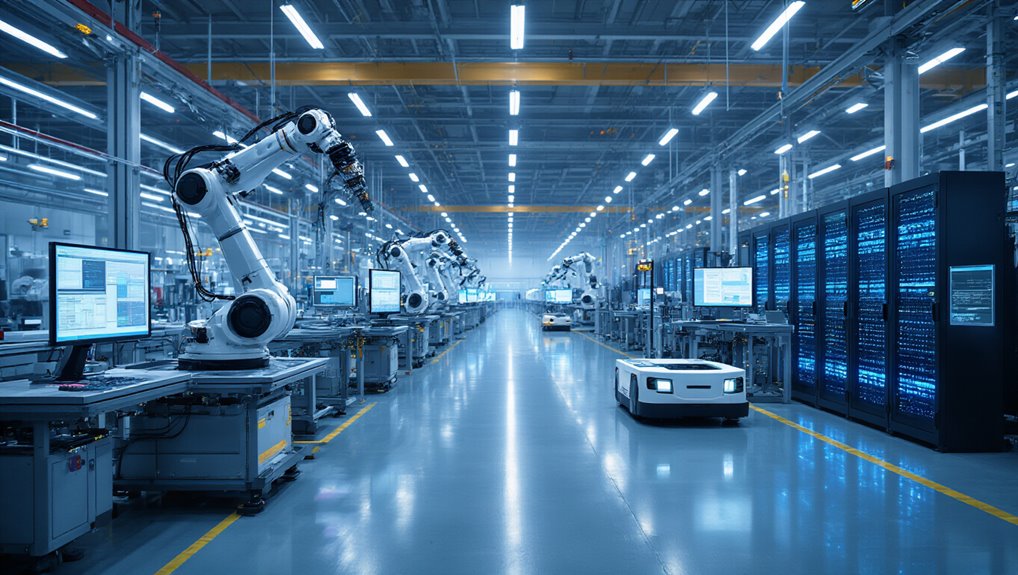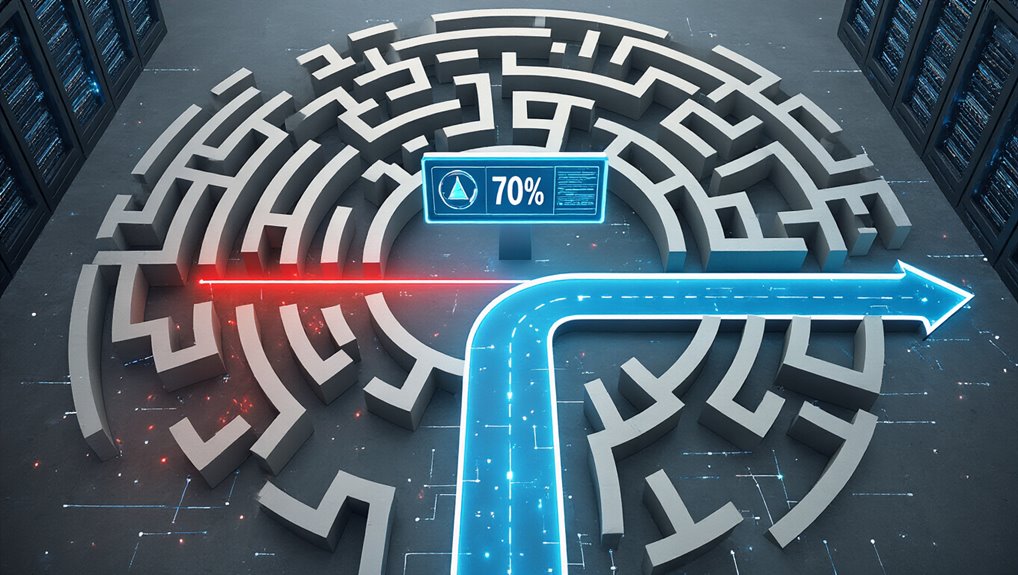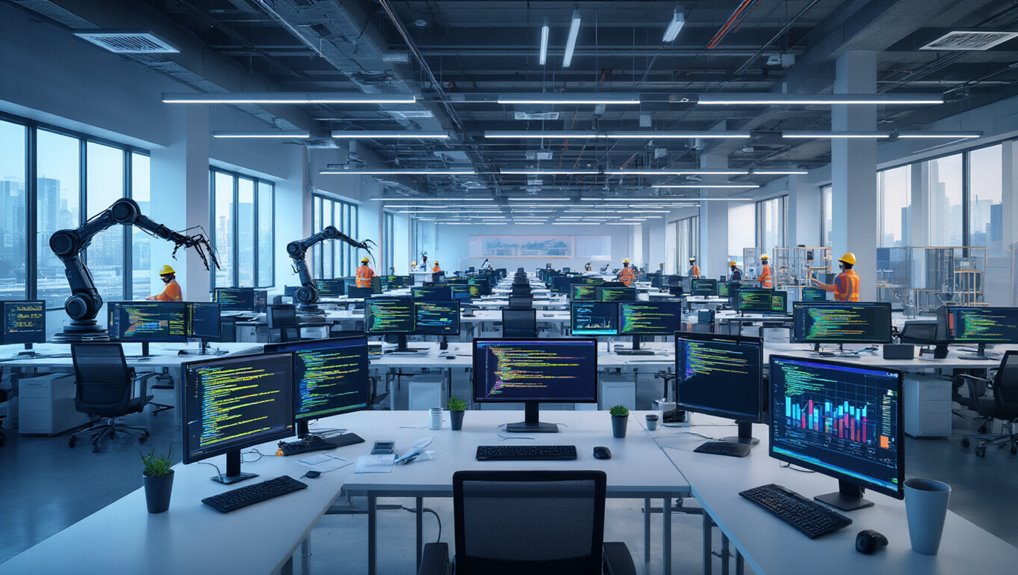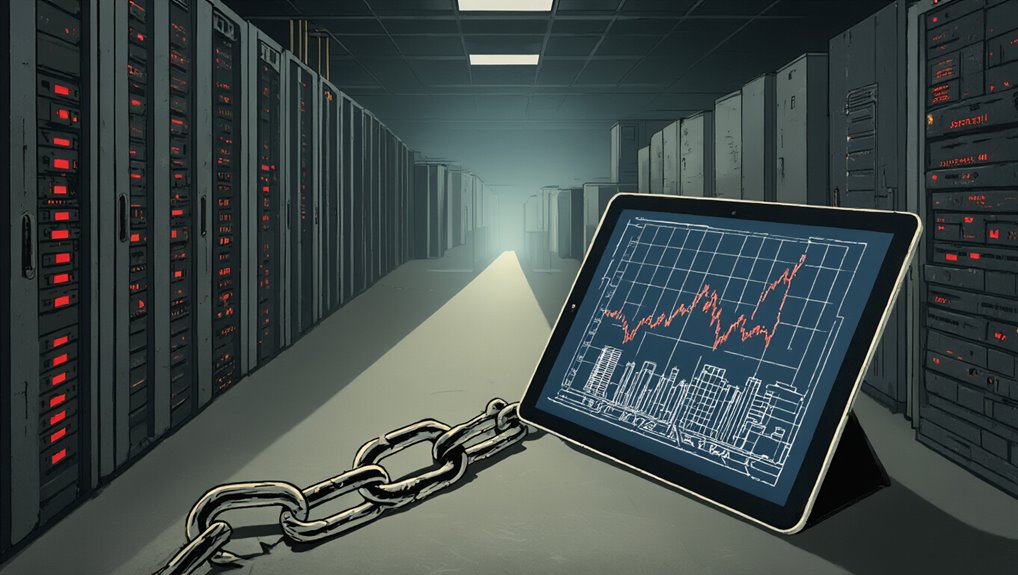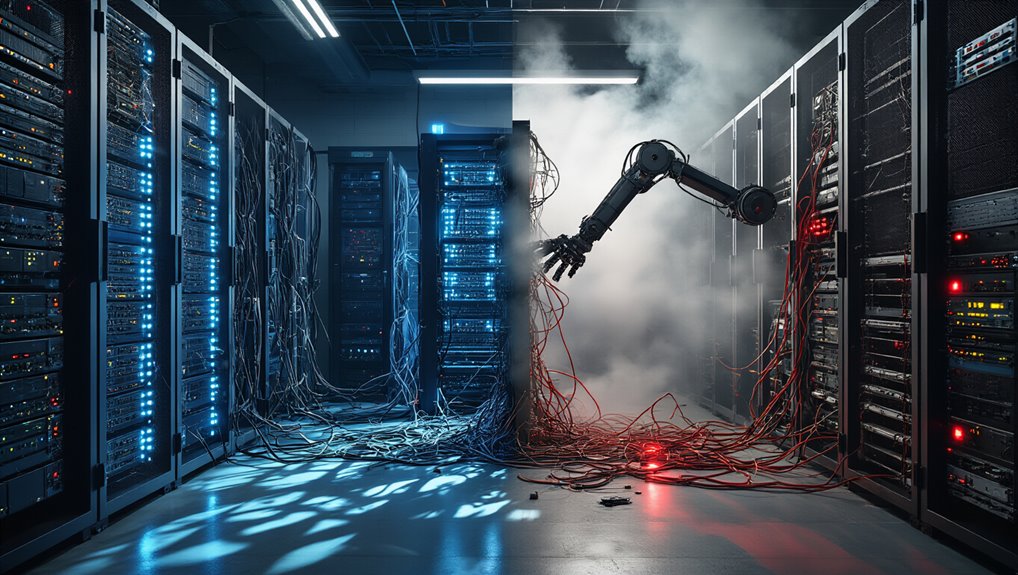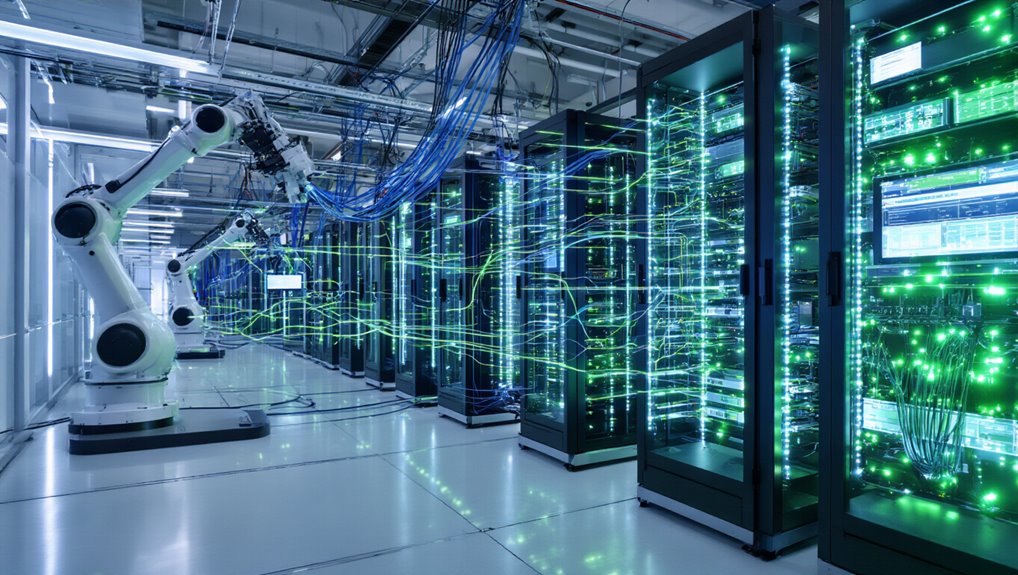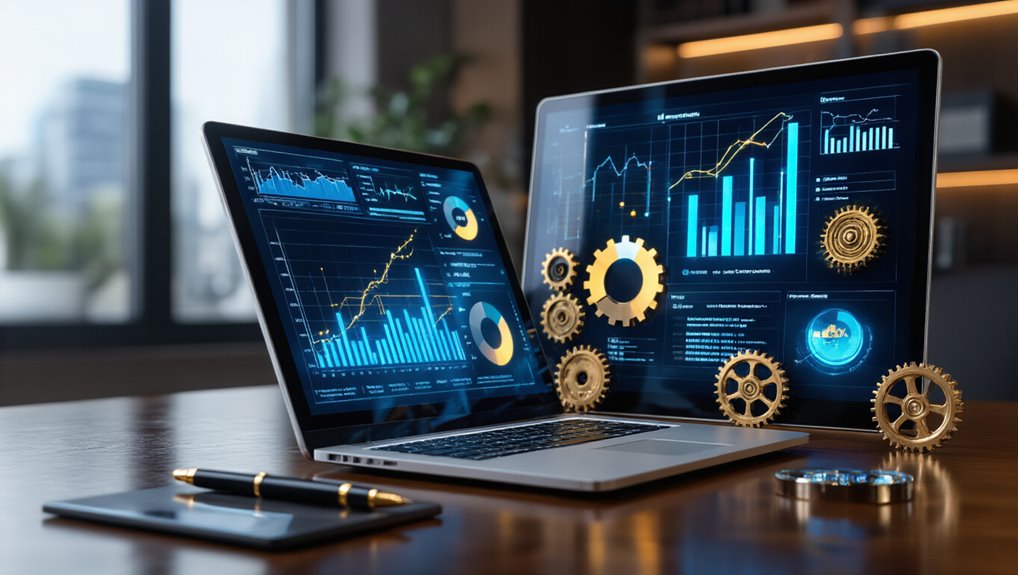As manufacturers face increasing global competition and technological disruption, digital transformation has become a critical strategic imperative rather than a mere option. The numbers reveal the scope of this revolution: manufacturing digital transformation is projected to reach $642.35 billion by 2025, while global digital spending across industries will hit $7 trillion by 2023—doubling in just one year. These figures aren’t merely impressive; they represent a fundamental reimagining of production processes.
Despite 92% of manufacturers ranking digital transformation as a priority, only 16% implement real-time monitoring across their full manufacturing processes. This gap between intention and implementation represents both a challenge and opportunity. Companies that successfully deploy AI and robotics technologies can boost productivity by 30% to 50%—a competitive advantage too significant to overlook. Organizations that effectively integrate digital technologies across all business areas can achieve 65% higher returns through streamlined operations and enhanced efficiency.
The digital transformation intention-implementation gap isn’t just a manufacturing challenge—it’s the untapped productivity goldmine of our time.
The manufacturing landscape is witnessing a critical shift from fragmented systems to unified enterprise data platforms. These centralized solutions connect IT and operational technology systems in real time, creating a “single version of truth” that enhances visibility into performance metrics, emissions, and operational risks. This integration is vital as manufacturing data has doubled in just two years and is expected to triple by 2030. The integration is further complicated as only 41% of manufacturers utilize IoT for advanced inventory tracking despite its proven benefits.
What makes this transformation particularly powerful is the integration of multiple technologies:
- IoT systems that track machine operations and setup times
- AI vision technologies that analyze human workflows
- Real-time data platforms that unify previously scattered information
Leading manufacturers are already experimenting with advanced applications—27% testing 5G, 24% implementing digital twins, and 20% deploying robotic process automation. Additionally, 55% of industrial manufacturers already utilize generative AI tools. Forward-thinking companies are implementing MLOps frameworks to ensure AI models maintain accuracy and performance after deployment.
Perhaps most significant is the emergence of “Twin Transformation,” where digital technologies and sustainability initiatives merge into coordinated programs. AI-driven energy optimization and carbon tracking systems demonstrate how digital tools amplify sustainability outcomes while simultaneously improving operational efficiency.
This dual focus guarantees manufacturing transformation delivers both economic and environmental benefits—reshaping the industry’s future in profound ways.
